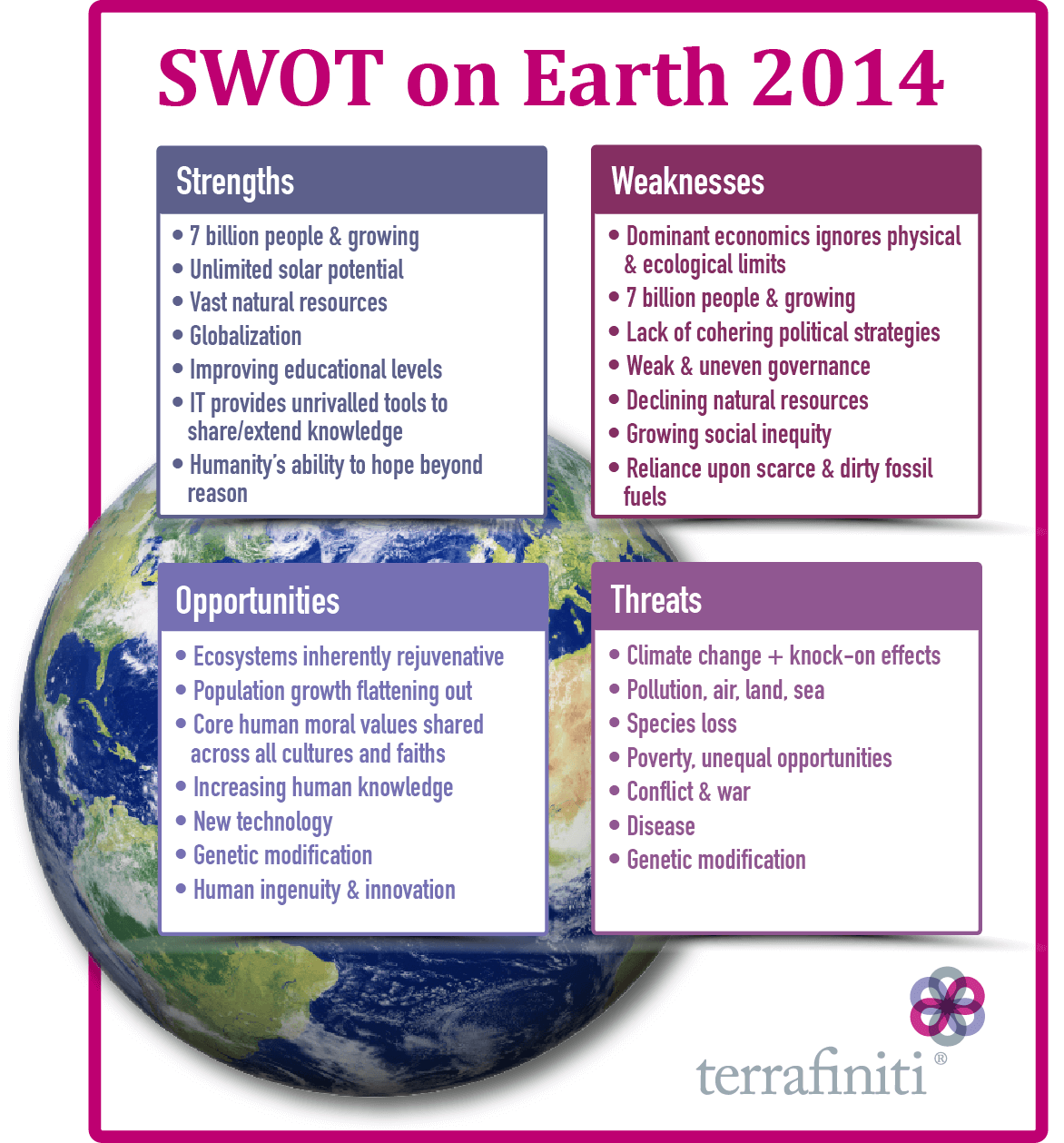“The Analytical Engine has no pretensions whatever to originate anything….Its province is to assist us in making available what we are already acquainted with.”
Ada Lovelace
SWOT’s Your Resolution for the planet?
It’s a brand New Year and here in the UK, like many countries, New Year brings new aspirations and resolutions. These tend to have a strong self-improvement theme and range from the trivial to game changing – at least some people like to think so.
We thought it would be interesting to focus upon resolution for a sustainable future, and rather than just jumping on the latest trendy bandwagons or buzzwords, take stock of the state we are in before planning for the future.
As we claim to be evidence based sustainability experts here at Terrafiniti HQ, we really need some sort of management tool (however simple) to help us focus on what is really important.
We thought we’d go very strategic and take a planetary approach, so here’s our SWOT on Earth for 2014.
Of course it’s difficult to force sustainability issues into boxes so you will find some things feature more than once – it’s an interconnected world out there!

Questions to consider
- What would you add to the above?
- What would you remove?
- How can we move more entries from the right to the left, from the bad to the good?
- How might this analysis have changed compared to 50 years ago and how might it be different in 50 years?
- What are your New Year Sustainability Resolutions?
That which does not kill you makes you stronger
Of course, such a simplistic analysis can never contain the fantastic and sometimes bewildering complexity of life on our planet, nor map all of its facets.
The fact remains, however, that many of the issues in our SWOT present both a negative and positive face for the planet’s future.
As ever, we have in our grasp either the means to make or to undo a sustainable future.

 The 2nd Law of Thermodynamics
The 2nd Law of Thermodynamics
Hi Dominic,
Interesting exercise. I’m curious to know why you feel 7 billion people and growing is a strength? This feels very anthropocentric which to me is a major part of the problem.
Regards,
Niraj
Hi Niraj
Thanks for your comment. Yes it is very anthropocentric and that is not only a major part of the problem – it is probably the entire problem. A large human population of course generates impacts with our current modes of production, the key is to develop and innovate production methods that decouple impact from production. There are other animal species on Earth with similar biomass to humans but they do not pose systemic threats to ecosystems. 7 billion people are therefore both a weakness and a strength. The solution to the problems caused by us lie with us. The more knowledge, effort and innovation available to us to meet these challenges the better chance of progress.